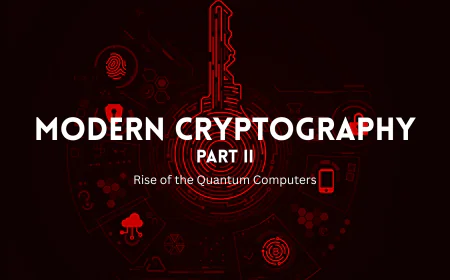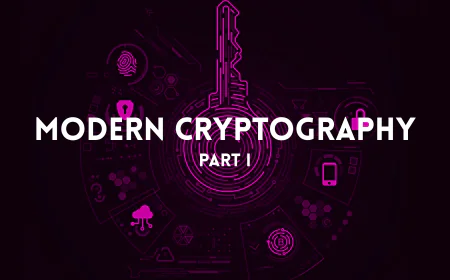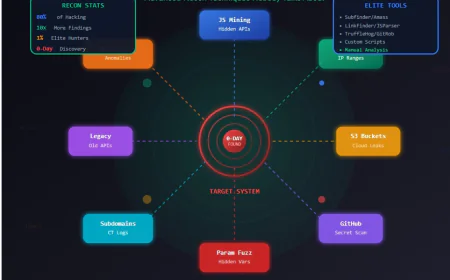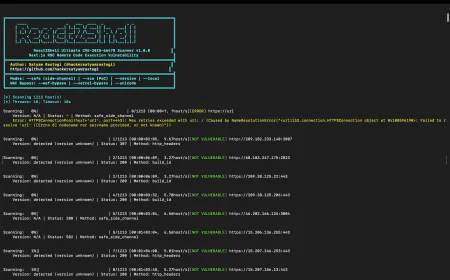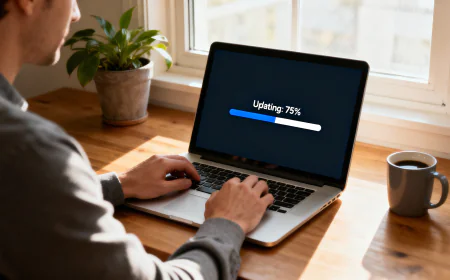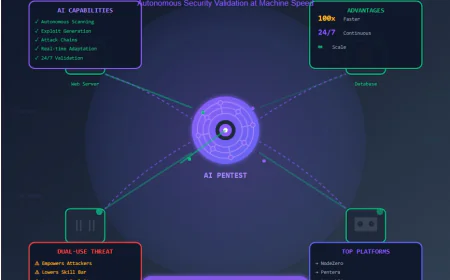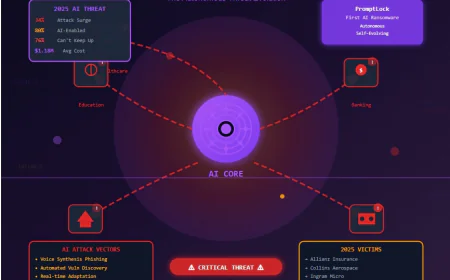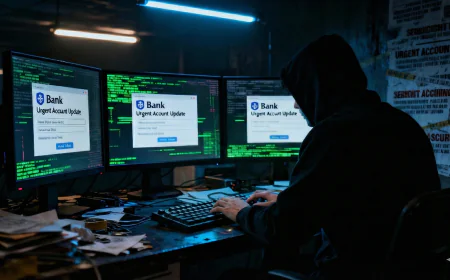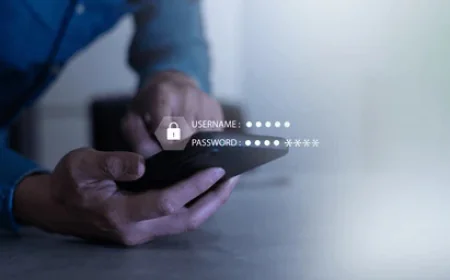The Importance of Password Security for Students in the Digital Age
The article under discussion sheds light on the utmost necessity of password security for students in the online era. It elaborates on the consequences of using weak or recycled passwords such as stealing of data, losing academic credits, and impersonation of one’s identity. Besides, the article shares some useful methods like coming up with complex passwords, activating Two-Factor Authentication, and availing oneself of password managers to assist the students in developing safe online practices and securing their digital identities.
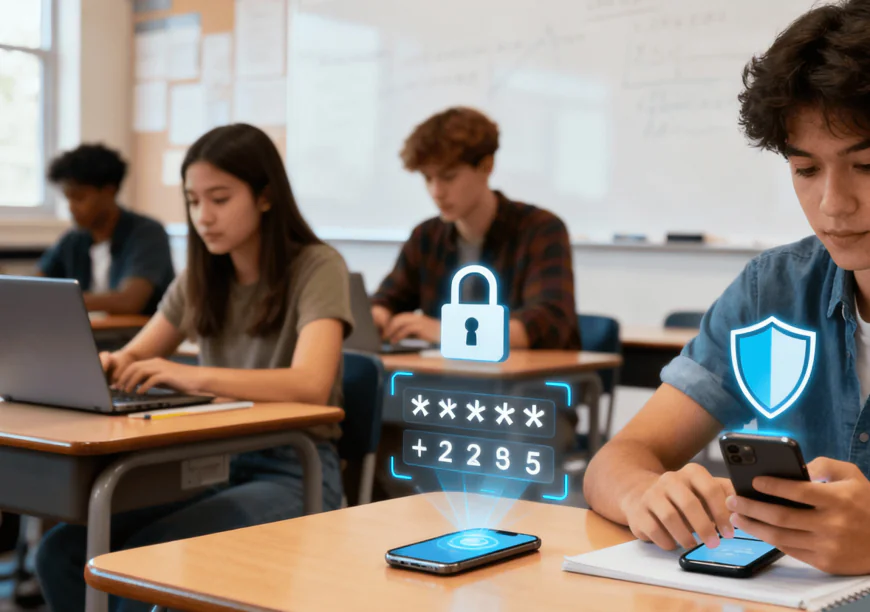
In 2025, the students would be virtually present in all the online activities like assignments, socializing, and many more. The internet will be a basic necessity. However, the longer you stay online, the higher the chance of getting hacked, having your identity stolen, or your data leaked. The straightforward method for the students to safeguard themselves in cyberspace is to use strong passwords. It may seem easy, but weak or reused passwords are still proving to be a significant cause of online issues. I would discuss why password safety is necessary, what errors are frequently made by students, and a secure online routine that can be established to protect your personal and academic information.
Why Password Protection Matters
Keeping Personal Information Safe
Students keep tons of their personal stuff online – school stuff, emails, money info, even copies of their IDs. If their passwords are weak or easy to guess, hackers can get in super easily and grab all that private info. Once they're in, they can pretend to be you, steal your identity, or leak your info. Just knowing this and using strong, different passwords is the first thing you can do to stop them from getting in without permission.
Preventing Academic Misconduct and Data Loss
The places where you usually save your schoolwork research, essays, absolutely everything-are Google Drive and school websites, for example. In case a hacker manages to break into those locations, you will be in the risk of losing your files, or having them altered, thus bringing down your grades and ruining your reputation. It is a good practice to use hard-to-guess passwords and enable Two-Factor Authentication (2FA) to keep your accounts safe from unauthorized access. Never tell your passwords to *anyone*, not even your closest friends in class. It may look like a more convenient way to share passwords for group projects; however, it compromises the security level.
Protecting Social Media Presence
These days, social media is just about your digital identity. If you have profiles on Instagram, LinkedIn, and TikTok, that will mostly determine your public image at both professional and casual settings. In case your account gets hacked, the hacker might either upload terrible content, or send messages under your name, and consequently, your reputation will be at stake. To avoid such a scenario, it is advisable to have strong, unique passwords for each site and enabling two-factor authentication whenever possible. You will be safeguarding your online personality and your privacy will be secured as well.
Common Password Mistakes Students Make
Even the most informed learners typically get caught in these security traps: Weak passwords: Picking very easy-to-guess passwords such as “password,” “qwerty,” or “123456” exposes the accounts to fast automated attacks. Password recycling: Connecting all the accounts by using a single password for different platforms means that if one gets hacked all the others will too. Ignoring updates: There are people who change their passwords very infrequently, even when they are aware that the breaches have occurred. Security is still there for the users who change the passwords regularly. Distributing passwords: Allowing others to use your login, even asking nicely, can alter the situation to the other person's favor and may cause some unpredictable risks.
Best Practices for Strong Password Security
Create Strong, Unique Passwords
A powerful password must: Be no less than 12 characters in length Include a variety of letters, numbers, and special characters Steer clear of personal information (birthdays, names, nicknames) Example formats: Join in the use of phrases along with symbols, e.g. “Tree!RainsEvery@March.” There are also password generators that can assist in creating random, complex, and hence impossible-to-guess passwords.
Enable Two-Factor Authentication (2FA)
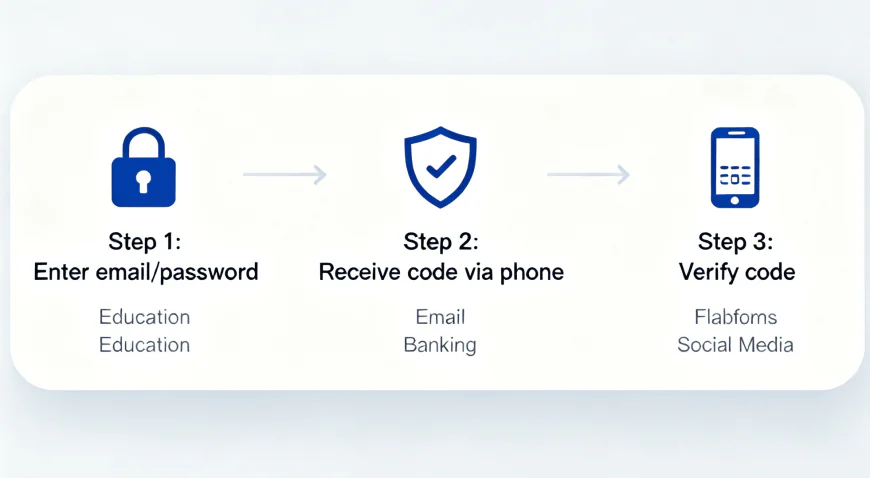
2FA is a digital protector. It involves an additional step like a verification code sent to your phone or app besides your password. In case a person gets hold of your password, he/she will still need to have the second device on hand. Thus, making it extremely difficult to get into your account without permission.
Enabling 2FA is a must for security reasons, especially on the following platforms: Educational institutes or universities' websites
Mail services
Financial and payment applications
Networking sites
Use a Password Manager
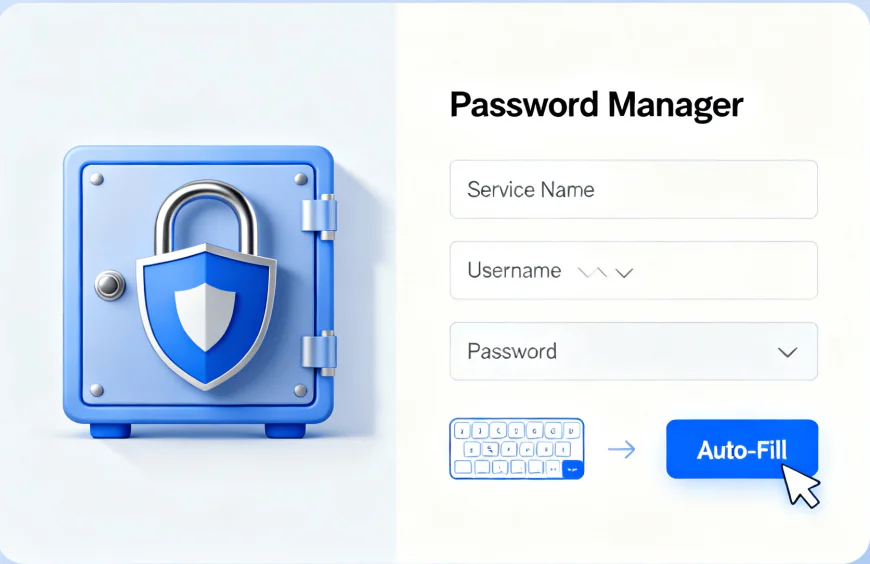
The burden of remembering numerous intricate passwords can be quite hard to bear. This problem is solved by password managers that keep credentials encrypted and securely stored in one place. For the facilitation of password management, students may opt for services like Bitwarden, 1Password, Dashlane, or Keeper to create, to hold, and to automatically fill in their secure passwords. This not only diminishes the allure of password reuse but also makes it unnecessary to recall numerous user names and passwords.
Update Passwords Frequently
It is less likely that a password will be compromised over a long period when it is changed every now and then. It is recommended to renew passwords every 3 to 6 months at least for the most critical accounts which include:
Email
Payment processing systems
E-learning platforms
Frequent changes of passwords grant that regardless of the situation where a password is divulged, it will not be effective for a long time.
Recognize and Avoid Phishing Attempts

Phishing scams usually deceive students by making them enter their credentials on phony sites or clicking on fake links. Get acquainted with spotting such activities by learning about suspicious URLs, email addresses that do not match, and urgent actions to be taken. In any case, verify twice the messages pretending to come from your institution, bank, or social network. Do not enter your password on a site that you do not know without confirming its legitimacy first.
Institutional Role in Promoting Password Awareness
Educational institutions can contribute to the security of passwords in the following ways: Awareness Programs: Continuous seminars for students on the topics of cyber hygiene, phishing detection, and password strength. Security Policies: Implementation of 2FA and passwords with high complexity requirements in the school IT systems. Regular Alerts: Notifications regarding possible data breaches or unusual access activity. If schools incorporate digital literacy into the academic environment, they will be able to provide safer online learning experiences for everybody.
The Psychology Behind Password Habits
Security is frequently compromised by convenience. A lot of students choose straightforward passwords, reasoning that they would not be the ones to be attacked or simply thinking, "It won't happen to me." This attitude creates a weakness. Raising security awareness from the outset brings about a long-term behavior change. Treat your password like a house key - you would never use a weak lock or, worse, let strangers have access to your house. In the same manner, strong passwords guard the digital “rooms” of your life that hold the most value. In addition, having discussions about cybersecurity among friends creates a positive ripple effect. The discussion generates a larger community, which thus leads to the establishment of new habits and a cultural transformation towards more secure practices.
Real-Life Risks of Weak Passwords
The repercussions of inadequate password security are severe: Identity Theft: Cybercriminals might access personal information to set up bank accounts or carry out unlawful activities under your name. Data Loss: Research activities or important documents can be erased, changed, or taken away. Reputation Damage: Undermining social media platforms can lead to the illegal promotion of one's own or untrue information. Financial Loss: Payment details that have been saved can be wrongly used for transactions without your permission. Emotional Stress: Losing the control of your online identity can lead to feelings of anxiety and emotional pressure. These dangers illustrate that a mere security negligence can lead to large-scale personal, educational, and financial losses.
Building a Secure Digital Routine
Implementing a proper and consistent security routine makes it possible for students to navigate the online world in safety and even get productive. Here is a list of daily tasks: Set different and hard-to-guess passwords for every single account. Make 2FA your default option. Use a reliable password manager. Rotate passwords periodically. Don't ever give out your login information. Always log out after using shared or public devices. Be cautious and do not trust unknown messages or websites. Incorporating these practices into your online conduct will make you constantly safe from hacking and other security violations.
Looking Ahead: The Future of Password Security
The rise of artificial intelligence and automation is making cyberattacks more clever. Basic password systems could very soon be replaced by biometric techniques (such as face recognition and fingerprint scanning) together with encrypted key systems. Nevertheless, the time when these tech advancements are universal and infallible has not yet come, and thus passwords continue to be the neurons of the online security brain. Acquiring good habits now will let the students be ready for a potential cybersecurity scenario that will be present in any profession - from engineering through design, law, and further.
Conclusion: Build Your Digital Defense Today
Password security is not just a technical requirement; it is a life skill that one has to learn in the digital world. Each password is like a lock for your personal, academic, and social life. Weak locks allow the intruders to enter while the strong ones make it difficult for them. The students can make the digital safety of their own by creating strong, unique passwords, enabling Two-Factor Authentication, and using password managers. A conscious approach not only wards off cybercrime today but also helps in the development of awareness for online security that lasts for a lifetime. Consider your passwords as your digital keys - personal, secret, and extremely valuable. Take good care of them and you will be able to not only safeguard your data but also your future.

